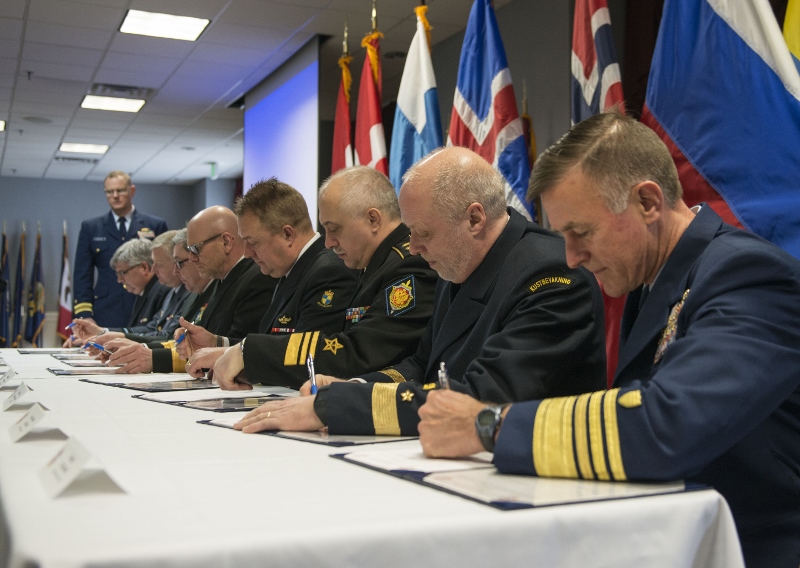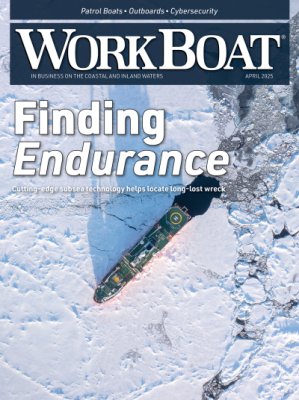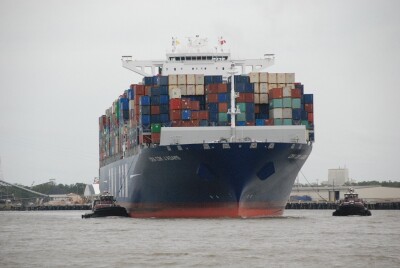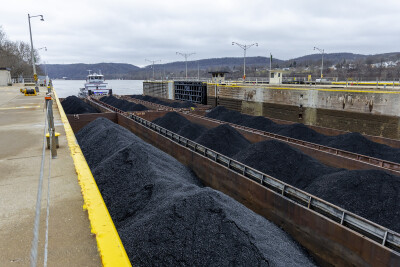Coast guard leaders from the world’s eight Arctic nations met in Boston Friday to sign a joint statement for cooperation on emergency maritime response and combined operations in the high northern seas.
U.S. Coast Guard Commandant Adm. Paul Zukunft joined leaders representing Canada, Denmark, Finland, Iceland, Norway, Sweden and the Russian Federation in the signing, and a ceremony handing off chairmanship of the group from the U.S. to the Finnish Border Guard.
Maritime and environmental groups alike have stressed the need for closer international cooperation, as more Arctic shipping routes became navigable with retreating ice, opening access for shipping, energy and mineral exploration and commercial tourism.
The statement adopts doctrine, tactics, procedures and information-sharing protocols for emergency maritime response and combined operations in the Arctic. It culminated two years of international collaboration, as working groups established strategies, objectives and tactics aimed towards achieving common operational goals in the region.
So far, nation representatives have participated in table top exercises in Reykjavik, Iceland, and the District of Columbia. A live exercise in the Arctic is planned for later this year. Coast Guard officials describe the forum as “an operationally-focused, consensus-based organization with the purpose of leveraging collective resources to foster safe, secure and environmentally responsible maritime activity in the Arctic.”
“This forum — one of many ways in which the Coast Guard uses our unique roles to enhance our Nation’s diplomacy — has quickly established itself as a premier platform for fostering safe, secure and environmentally responsible maritime activity in the Arctic,” said Zukunft.
In testimony to U.S. senators earlier this week, Zukunft spoke of the need to engage with other Arctic nations, characterizing it as a clear preference for cooperation over competition. Nevertheless, he stressed the need for the U.S. to press forward with building a new fleet of three heavy and three medium icebreakers.
The Coast Guard has just two operational Arctic icebreakers, the 399’x83’x28’ Polar Star heavy icebreaker, and the 420’x82’x29’ medium icebreaker Healy. The Polar Star’s 1970s sistership Polar Sea has been laid up and serving as a parts bank for the other, as the Coast Guard aims to keep Polar Star operational until a new heavy icebreaker is ready by 2023.
The U.S. has justifiable claim to some 386,000 square miles of extended continental shelf in the Arctic, potentially with 50% of the region’s energy reserves, Zukunft told the Senate Commerce Subcommittee on Oceans, Atmosphere, Fisheries and Coast Guard Wednesday.
“If we are not up there operating, as a show of sovereignty” other nations will be, Zukunft said, noting Russia’s efforts to lay claims for north of its coastline. Similarly, the Polar Star is a critical link to American activity in Antarctica.
“If we are not a player there, we are an observer,” said Zukunft.





